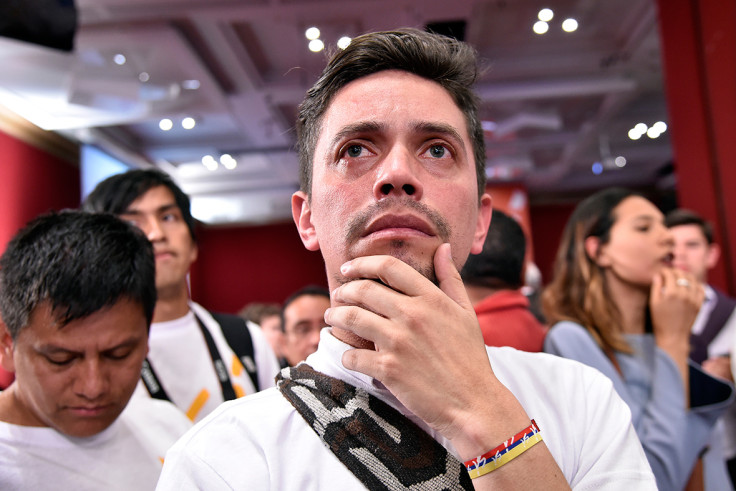Colombian president to hold talks with political parties to save peace deal with Farc rebels
Leader of 'no' campaign says that government should renegotiate the deal with the rebel group.
Colombian President Juan Manuel Santos has appointed a team of government officials to save the historic peace deal reached on 26 September with Revolutionary Armed Forces of Colombia (Farc) rebels to put an end to 52 years of conflict. The senior officials would hold talks with the opposition on changes that need to be made to the peace deal, which was rejected by voters in a referendum.
For the agreement to be implemented, a referendum was held on 2 October, wherein Colombian voters rejected it by a narrow margin – 50.21% voted "no", while 49.78% voted "yes".
Former president Alvaro Uribe, the leader of the "no" campaign, said that the result of the referendum gave the government a mandate to go back and renegotiate the deal with the rebel group.
Following this, President Santos – who put his presidency on the line for the deal – said, "I will not give up. I will keep seeking peace until the last minute of my term."
In a televised address, he said that he had asked former vice president Humberto de la Calle to "begin discussions as soon as possible [with opposing groups] addressing all the necessary issues to have an agreement and realize the dream of every Colombian to end the war with the FARC".
On Monday, De la Calle, who was the chief negotiator of the deal, offered to resign and took "full responsibility for any errors in the negotiation".
Meanwhile, Farc commander-in-chief, Timochenko said: "Peace is here to stay." He noted that the group will not revert to violence and added that they would continue to abide by the ceasefire agreement reached with the government.
The deal between the government and the rebels was signed after nearly four years of hard negotiations held in Havana, Cuba.

© Copyright IBTimes 2024. All rights reserved.





